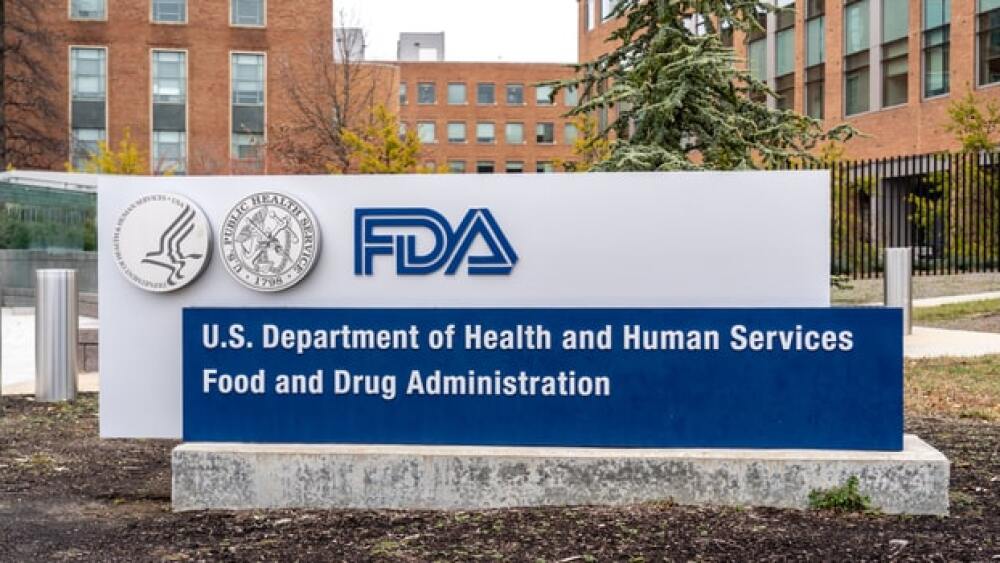Neuronascent Inc. announced that the U.S. Food and Drug Administration has cleared the Company’s Investigational New Drug application for its proprietary oral therapeutic, NNI-362, to proceed into Phase 1 clinical testing in a healthy aged population.
MARYLAND, May 7th, 2019 (West GlobeNewswire) -- Neuronascent Inc., a privately-held neuron regeneration therapeutics company, today announced that the U.S. Food and Drug Administration (FDA) has cleared the Company’s Investigational New Drug (IND) application for its proprietary oral therapeutic, NNI-362, to proceed into Phase 1 clinical testing in a healthy aged population.
NNI-362, discovered by Neuronascent’s founder, is able to selectively stimulate the conversion of human brain neural progenitor cells to mature functioning neurons. This stimulation should reverse the cognitive and functional decline seen in aging Alzheimer’s disease (AD) patients.
The brain’s own neurogenesis process of neural progenitor cell differentiation and survival continues to produce new neurons in the human hippocampus from birth to well into adulthood. However, this process slows in aged individuals and slows dramatically in AD patients, which is thought to contribute to the progressive cognitive decline seen in aging AD patients.
Neuronascent’s NNI-362 aims to fill a massive void in treatment options for AD patients already suffering from this progressive neurodegenerative age-related disorder.
The IND package demonstrates that NNI-362 administration reverses age- and disease-related cognitive deficits. This reversal of cognitive deficits by NNI-362 is associated directly with the stimulation of new neuron formation (that is, a reversal of the reduction of new neurons) in aged and Down syndrome-modeled animals, with brain neuron levels returning to levels seen in young and normal animals. Preclinical data for NNI-362 supports a reversal of disease progression and improved cognitive function, effectively returning the brain to a younger state.
“This ability to reverse age and disease-related cognitive and new neuron deficits following oral NNI-362 administration is indeed what we expect to see in Alzheimer’s patients, who already have cognitive loss due to neuron degeneration and the ‘co-morbidity of age.’ The brain of an AD patient appears incapable of replacing those lost neurons without therapeutic intervention,” stated Judith Kelleher-Andersson, Ph.D., the Founder and CEO of Neuronascent.
Neuronascent’s neuron regeneration approach aims to replace lost neurons and ensure their continued survival, in stark contrast to early attempts at neuroprotection alone or at improved synaptic plasticity, which have been insufficient in halting this chronic and progressive mind- robbing disorder of the aged.
The vast majority of new AD cases are in aged individuals. Incidence rates range from 0.2% in those aged 65-74, 1.1% in those aged 75-84 and 3.7% incidence in those above 85 years of age, as stated in the Alzheimer’s Association’s 2018 Alzheimer’s Disease Facts and Figures.
This IND and first-in-human Phase 1 study of NNI-362, for safety, tolerability and pharmacokinetic measures is funded by a $2.25 million RO1 grant awarded to Neuronascent by National Institute on Aging (NIA), National Institutes of Health. This NIA support of the IND- enabling and Phase 1 studies is part of the Institute’s expanded drive to support novel therapies for AD and promote the development of disease-modifying therapies, which, to date, have proved elusive. R. Scott Turner, MD, PhD, Director of the Memory Disorders Program at Georgetown University, who will serve as Clinical Monitor on the Phase 1a study, stated, “Given the many recent disappointments in Alzheimer’s trials targeting amyloid, it is essential to pursue innovative treatment targets and strategies, especially if such a treatment is a non- invasive therapy that could safely produce new neurons in aged Alzheimer’s patients.”
About NNI-362
NNI-362 is Neuronascent’s patented oral therapeutic aimed at reversing age-related disorders by producing new neurons to replace those lost in chronic neurodegenerative disorders and aging. NNI-362 has a unique mechanism of action (MOA) that provides safety and selectivity specifically for neuron regeneration, and was discovered through Neuronascent’s proprietary phenotypic screening program using human neural progenitors. This MOA takes advantage of the neural progenitors already in the aged brain to promote new neurons and protect them from degeneration in chronic diseases of the aged, specifically Alzheimer’s disease. New neuron regeneration from neural progenitors is a physiologic process in the brain, yet with aging and neurodegenerative disease there begins a pathological insufficiency in generating new neurons that survive to functionality. Thus, NNI-362 is aimed at reversing age-related neuron loss and restoring cognitive function in AD patients, and should also be useful for other disorders of the elderly, including Parkinson’s disease and age-related hearing loss.
About the Trial
The IND clearance by the FDA allows Neuronascent to begin the placebo-controlled Phase 1a trial in healthy-aged population between 50 and72 years of age, in single and multiple dose dose-ascending studies. A total of 56 healthy-aged volunteers are expected for this study. An Early Phase Clinical Unit (EPCU) will be the single clinical site. The Phase 1a study is to ensure safety of this novel therapy and to understand the pharmacokinetics in blood plasma of aged volunteers with and without food. Future FDA-approved clinical trials could then assess the efficacy of NNI-362 to reverse memory deficits and increase hippocampal volume (as measured by volumetric MRI). These future trials will also evaluate other markers of neurodegeneration in AD patients.
About Alzheimer’s Disease
Alzheimer’s is a disease of aging (the greatest risk-factor), but there is no therapy available to halt or reverse this chronic neurodegenerative disorder. The need is great to find a disease- modifying treatment for the 5.3 million patients, in the US alone, already suffering from this disorder. Recent NIA funding emphasis is allowing for the expansion of targets and innovative AD therapeutic programs, such as Neuronascent’s oral neuron regenerative therapy. With AD’s unknown etiology and resistance to treatment, a safe regenerative therapy, such as NNI-362, does not require full understanding of the cause(s) of AD.
About Neuronascent, Inc.
Neuronascent was founded to discover and develop novel therapies to halt and/or reverse diseases of the central nervous system, an area with vast unmet needs. Through its proprietary phenotypic screening platform, Neuronascent has discovered a pipeline of now-optimized small- molecule oral lead candidates that are patented for Composition and Use. The pipeline is diverse both in physical chemical properties and in mechanism and targets, engendering therapies for a host of psychiatric, neurodevelopmental and neurodegenerative disorders.
Please Contact knarducy@neuronascent.com or investrelate@neuronascent.com
Safe Harbor Statement
This release contains forward-looking statements, which are made pursuant to the safe harbor provisions of the U.S. Private Securities Litigation Reform Act of 1995. Forward-looking statements are commonly identified by words such as “would,” “may,” “will,” “expects,” and other terms with similar meaning. Forward-looking statements are based on current beliefs, assumptions and expectations and speak only as of the date of this release and involve risks and uncertainties that could cause actual results to differ materially from current expectations.




